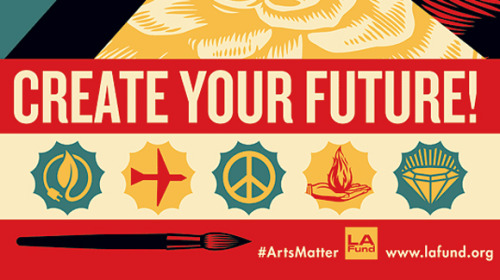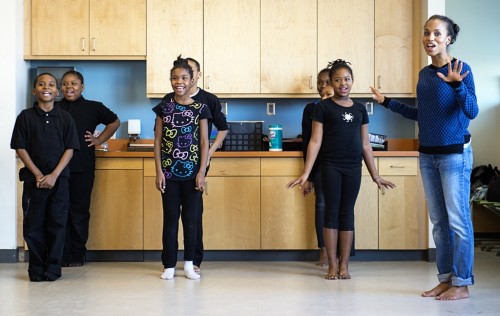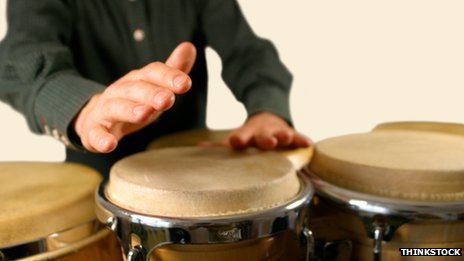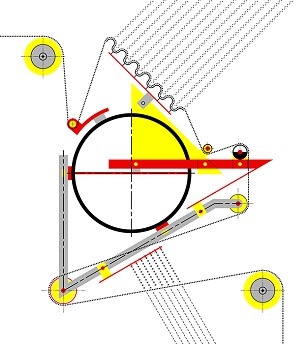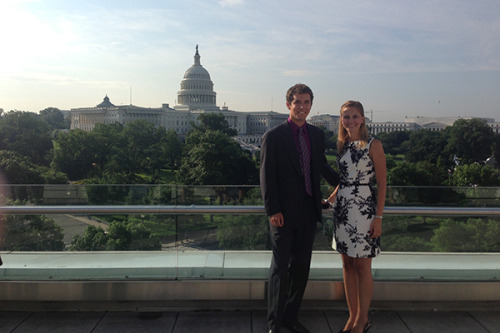#arts education
THUNDER THURSDAY #84: Teaching Animation!
Hey folks, Paul here for THUNDER THURSDAY! Couple quick updates:
- Tomorrow I’m visiting a high school in Southern Pines, NC to give animation demos for computer arts classes. I’ll be showing how to make the gifs above in After Effects–looking forward to it!
- On the OpenToonz front, I’ve written my first tutorial outlines and gotten a mic for better audio quality. I’m looking forward to recording soon, but first I need to finish some book stuff and hope that my head cold clears up.
Stay tuned for more toons!
- Paul
Post link
WHERE DO WE LEARN? NEW REPORT FINDS ARTS EDUCATION INCREASINGLY HAPPENS OUTSIDE OF SCHOOL
“A new report by The Wallace Foundation argues students are increasingly finding valuable arts education exposure via technology they access outside of the classroom - and teachers should use that to their advantage.”
Read:Where do we learn? New report finds arts education increasingly happens outside of school
Post link
OBAMA “HOPE” ARTIST: PUT MUSIC BACK IN SCHOOLS
“Graphic designer and street artist Shepard Fairey is well known for images like the OBEY logo and those iconic posters of Barack Obama from his 2008 election campaign. [Now] Fairey’s latest project is all about getting art back on the agenda in schools…”
Read:Obama “Hope” Artist: Put Music Back In Schools
Post link
AMID TESTS AND TIGHT BUDGETS, SCHOOLS FIND ROOM FOR ARTS
“National arts education statistics suggest that these days, arts are a persistent—but uneven and thinning—presence in American schools. A 2012 U.S. Department of Education report that compared surveys from 1999-2000 and 2009-2010 found that music was offered in 94 percent of elementary schools during both timeframes, and that visual art offerings dropped only slightly, from 87 percent of schools in 2000 to 82 in 2010.”
Read:Amid Tests and Tight Budgets, Schools Find Room for Arts
Post link
TURN ‘STEM’ INTO 'STEAM’ WITH ARTS EDUCATION
“…Most important, developing this creativity needs to start in the K-12 schools. Sustaining arts education in its own right remains critically important. But equally important is taking a page from schools that have been successful at integrating the arts into STEM curriculum with a STEAM approach.”
Read:Turn STEM into STEAM with arts education
Post link
THE ECONOMIC IMPERATIVE FOR INVESTING IN ARTS AND CULTURE
“We have to stop thinking about arts and culture as simply nice-to-haves. They are just as important as well-maintained roads and bridges. By giving us the chance to stimulate our minds with new ideas and experiences, they give us the opportunity to become more creative. Arts and culture are infrastructure for the mind.”
Read:The economic imperative for investing in arts and culture
Post link
AFTER YEARS OF CROUCHING, ARTS ED IS RAISING ITS HAND AGAIN
“Today, more and more policymakers think it is the arts, after all, that can motivate kids, engage them and help them develop 21st-century skills such as teamwork and innovative thinking — in sum, be the key to their salvation.”
Read: After years of crouching, arts ed is raising its hand again
Post link
CHAPSTICK® PARTNERS WITH MUSIC EMPOWERS TO SPOTLIGHT HEALTHIER, HAPPIER MUSICALLY TALENTED LIPS!
ChapStick® is collaborating with recently re-launched Myspace to host a national live stream concert event featuring Emeli Sandé and other rising stars on Monday, February 11 at the Key Club in Los Angeles.
The concert is part of ChapStick® Sessions! This initiative features five dynamic video jingles viewable on the Sessions tab of the ChapStick® Facebook page. These songs are performed by diversely talented up-and-coming singers, selected by ChapStick®.
HERE’S THE BEST PART: for each ChapStick® Sessions video shared, a $1 donation will be made, up to a total donation of $50,000, to the Music Empowers Foundation!
View all five great videos here and share them today to help raise money for music education! Don’t forget to tune into the live stream on Monday February 11 to watch the concert - ChapStick® will donate $1 for each view!
Post link
THE PSYCHOLOGY OF MUSIC
There’s more to why we like music than just a catchy beat or an easy karaoke tune. Dozens of receptors in our brain respond to different musical aspects like tone, rhythm, and lyrics, determining the qualities we personally like and dislike. Don’t let music just go in one ear and out the other – learn how to interpret your brain’s response to music, the benefits of listening to it and the importance of music education.
See the whole infographic: The Psychology Of Music
Post link

Does studying music boost students’ overall test scores? Recent research casts doubt on that belief, concluding that the link between music education and good grades appears to reflect the impressive nature of the students who study music, rather than an intrinsic effect of the lessons themselves.
But a new study from Canada suggests music lessons may in fact have wide-ranging intellectual benefits. It finds that, among a group of high-performing high school students, grades were consistently higher for those who continued music classes compared to those who dropped them after two years of compulsory training.
MOVING TO THE RHYTHM CAN HELP LANGUAGE SKILLS
“It seems that the same ingredients that are important for reading are strengthened with musical experience. Musicians have highly consistent auditory-neural responses.
"It may be that musical training - with its emphasis on rhythmic skills - can exercise the auditory-system, leading to less neural jitter and stronger sound-to-meaning associations that are so essential for learning to read,” added Prof Kraus.
Read:Moving To The Rhythm Can Help Language Skills
Post link
MAKING MUSIC MAKES A NICER KID
“Kid musicians are nicer, more helpful and have better problem-solving skills than kids who don’t make music, according to a new study. Researchers say the findings demonstrate how important it is to have music in schools.”
Read:Making Music Makes A Nicer Kid
Post link
ARTISTS ‘BETTER PROTECTED’ AGAINST DEMENTIA, STUDY FINDS
“Artists compared with non-artists are better protected, he added. "Due to their art, the brain is better protected [against] diseases like Alzheimer’s, vascular dementia, and even strokes. They have more reserve in their brain in order to give functions.”
Read:Artists Better Protected Against Dementia, Study Finds
Post link
ART IS “AMERICA’S SECRET WEAPON FOR POSITIVE CHANGE”
“The arts provide a way for people better to understand "who they are in a time in history where that is desperately needed.”
Read: Art Is “America’s Secret Weapon for Positive Change”
Post link
LOBBYING FOR MUSIC
“If there is too much focus on non-creative subjects in our schools, I believe that our educational programs across the nation would suffer,” said McCutchon, the current secretary of UD’s NAfME chapter. “Music not only teaches students how to understand and play music, but also key skills such as teamwork, time management, forward planning, and organization. Music in itself is such a powerful tool that anyone can connect to no matter how small that connection may be.”
Read:Lobbying For Music
Post link





